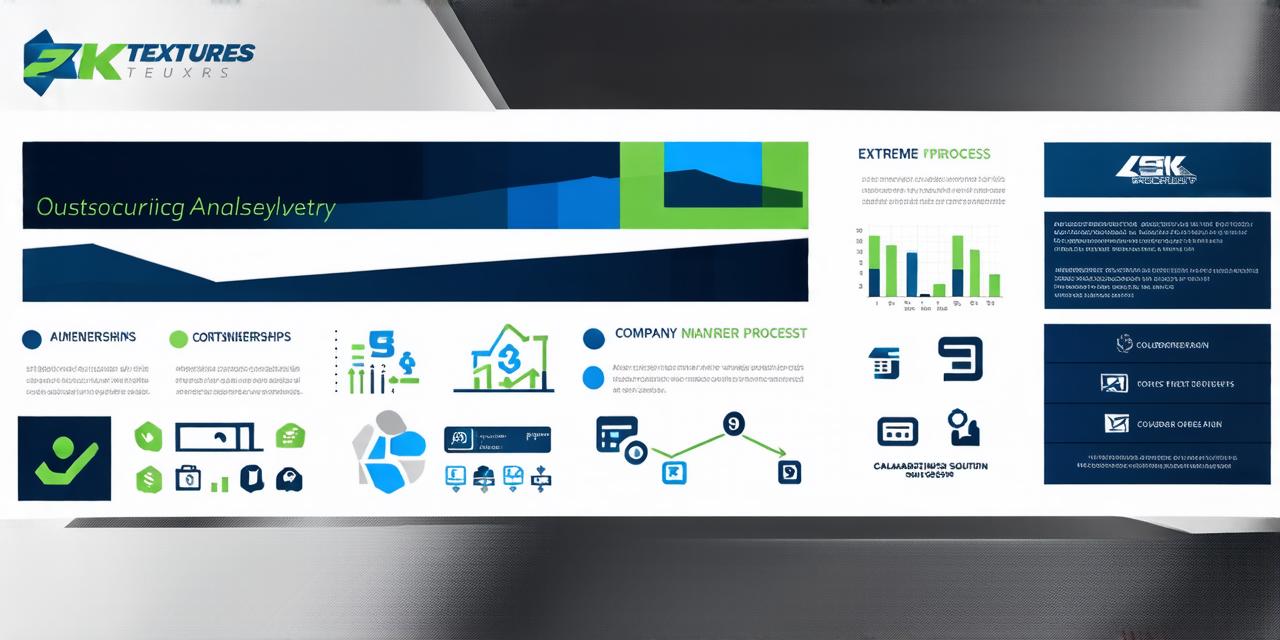Which of the following is a part of the process of outsourcing analyses?
Introduction
Outsourcing analyses is becoming an increasingly popular practice for businesses looking to reduce costs and improve efficiency. It involves delegating analytical tasks, such as data collection, analysis, and interpretation, to external providers.
However, the process of outsourcing analyses can be complex and requires careful planning and execution. In this article, we will guide you through a step-by-step process for outsourcing analyses, including key considerations and best practices.
Step 1: Determine Your Analytical Needs
Before outsourcing analyses, it’s essential to determine your analytical needs. What data do you need to collect? How will you use this data to make informed decisions? What are the specific tasks that need to be completed? By answering these questions, you can identify the skills and expertise required for the job and select the right provider.
Case Study: ABC Corporation
ABC Corporation is a manufacturing company that wanted to improve its supply chain management. The company realized that it lacked the internal resources and expertise to collect and analyze the necessary data. So, they outsourced their analytics needs to an external provider with experience in supply chain management. This allowed them to gain insights into their supply chain operations, identify areas for improvement, and optimize their logistics processes.
Step 2: Select the Right Provider
Once you’ve determined your analytical needs, it’s time to select the right provider. There are many factors to consider, including the provider’s experience, expertise, reputation, and cost. It’s essential to do thorough research and compare providers to find the one that best meets your needs.
Case Study: XYZ Analytics

XYZ Analytics is a data analytics firm with expertise in various industries, including healthcare, finance, and technology. They offer a range of services, including data collection, analysis, and interpretation. ABC Corporation selected XYZ Analytics for their supply chain management project because of their experience in the manufacturing industry and their ability to provide customized solutions.
Step 3: Define Scope of Work
Defining the scope of work is critical for a successful outsourcing relationship. This includes identifying the specific tasks that need to be completed, timelines, deliverables, and performance metrics. It’s important to have clear expectations and communication with the provider throughout the project.
Case Study: LMN Data Analytics
LMN Data Analytics is a data analytics firm that specializes in machine learning and predictive analytics. They worked closely with ABC Corporation to define the scope of work for their supply chain management project. This included identifying the key performance indicators (KPIs) that would be used to measure success and defining the timeline for data collection and analysis.
Step 4: Develop a Communication Plan
Effective communication is essential for any outsourcing relationship. It’s important to establish clear lines of communication with the provider, including regular meetings, updates, and feedback. This helps ensure that everyone is on the same page and that any issues or concerns are addressed in a timely manner.
Case Study: PQR Analytics
PQR Analytics is a data analytics firm that specializes in business intelligence and performance management. They worked closely with ABC Corporation to develop a communication plan for their supply chain management project. This included regular check-ins with the project manager, weekly progress updates, and monthly reviews of the KPIs.
Step 5: Establish Quality Control Measures
Quality control measures are essential to ensure that the work delivered meets your expectations. This includes defining quality standards, conducting regular audits, and providing feedback to the provider. It’s important to have a process in place for addressing any issues or concerns that arise.
Case Study: STU Analytics
STU Analytics is a data analytics firm that specializes in market research and competitive analysis. They worked closely with ABC Corporation to establish quality control measures for their supply chain management project. This included defining quality standards for data collection, analysis, and interpretation and conducting regular audits to ensure compliance.
Summary
Outsourcing analyses can be a complex and challenging process, but with the right approach, it can lead to significant cost savings and improved efficiency. By following these five steps, you can successfully outsource your analytical needs and gain valuable insights that will drive business growth. Remember, it’s important to do thorough research, select the right provider, define clear expectations, establish effective communication, and establish quality control measures to ensure success.
